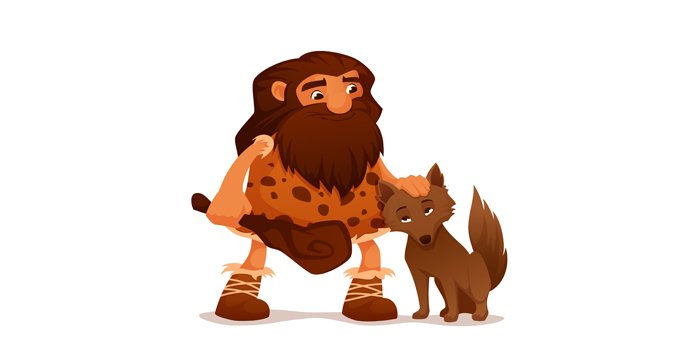We’ve heard that Neanderthal genes live on in some modern humans, but the disappearance of Neanderthals still remains a mystery. Did ancient humans drive them out of existence? Did we outhunt them? Did they simply intermingle with us to the point that they disappeared?
A new study recently released suggests the answer might lie in man’s best friend.
Climate Change Wasn’t Enough
The last Neanderthal populations existed 27,000 to 40,000 years ago, according to NPR. Climate change wasn’t enough to cause the downfall, because Neanderthals had survived previous periods of very intense cold. However, climate change combined with the introduction of modern humans could have played a role. With one additional key ingredient.
Our Friendship with Canines Might Have Caused the Neanderthals’ Downfall
When modern humans arrived in Eurasia, pretty much every competing predator experienced a significant crash in numbers except for wolves, according to a book by Pat Shipman called The Invaders: How Humans and Their Dogs Drove Neanderthals to Extinction.
And that’s strange, since modern humans were the invading species. Neanderthals should have had an advantage, National Geographic has said.
About 35,000 years ago, humans bred wolf-dogs – an early attempt at domesticating wild wolves. These wolf-dogs would have been amazing hunting companions for humans, helping them have a distinct advantage over Neanderthals. For example, wolf-dogs would have helped humans defend carcasses against other predators – a task that would have been very difficult for humans before.
Other advantages that these domesticated wolves would have brought included the ability to track animals from farther away and the ability to run faster than humans and surround an animal in packs. All these would have given humans distinctive hunting advantages over Neanderthals.
Evidence of this is seen in mega mammoth sites, where huge numbers of mammoths hunted by humans are found, along with wolf bones.
The disappearance of Neanderthals coincides very closely with the arrival of humans and the introduction of their hunting companions: early domesticated wolves. It’s very likely that we owe our current status in the world to our longtime canine best friends.









